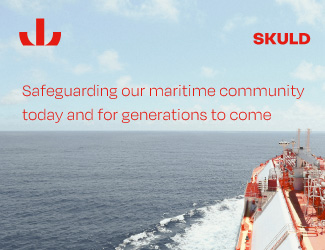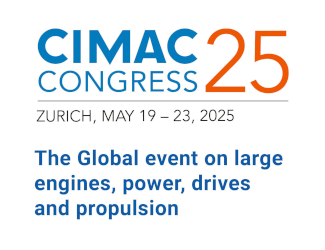Nigel Shewring, recently appointed R&D director of coatings market leader Hempel, talks to HANSA about investments, expansion and regulations
What is Hempel’s R&D strategy?
Nigel Shewring: To maintain our leading position in innovation, we continue to[ds_preview] invest heavily in R&D. As an example, we are currently constructing a new R&D centre, which will house around 100 international researchers in Copenhagen. Our strategy and goal is to establish »value-adding« partnerships with our customers. These partnerships ensure that we deeply understand our customers’ needs and the challenges they face.
Is more cooperation with other institutions or an expansion of the own capacity, probably through M&A, an option??
Shewring: We are always on the lookout for competent external partners, and an expansion of our R&D capacity, as witnessed by the investment in our new R&D centre in Copenhagen, is definitely an option and a goal. This also includes buying technology, as we are looking for both. It is a goal of Hempel to grow: we want to double our business, partly through acquisitions, by the end of 2024. When we look at the possibilities of an acquisition, we of course look at the technology portfolio to determine what is complementary and how such technology can be used or developed further to offer solutions to our customers.
What might be upcoming »new« topics in this respect?
Shewring: Of course, sustainability is extremely important and a key driver of innovation both in our own operations and downstream for our customers who expect coatings that can improve their operations and business performance by, for example, reducing fuel consumption or energy use, increasing production efficiency, reducing waste or improving their own sustainability and environmental performance. One recent launch is Hempatop Repel 800 where game changing performance is achieved from the combination of our new water repellent coating together with Avantguard activated zinc primer. The new system is expected to significantly reduce the amount of coating material, VOCs and manpower used during both the construction and the maintenance of offshore assets. With regard to our ongoing efforts to reduce customers’ fuel consumption, I would like to mention our newest development, Hempaguard Max, which we launched in September. This new fouling defence system reduces drag and results in savings in fuel consumption of up to 17% by a combination of superior hull smoothness and best-in-class fouling prevention, especially during slow steaming and long idling periods.
What is your view on the question of conventional vs. non-toxic solutions?
Shewring: We are committed to embedding and increasing sustainability in our business activities. We fully comply with global and local chemical regulations and aim to stay ahead of future legislation. We work to reduce substances of concern within our products with a systematic approach to phasing out hazardous raw materials. This work supports regulatory compliance and allows Hempel to have a more sustainable product portfolio for the future. Right now, the focus is on outright performance; customers face increasing pressure to minimise emissions from their vessels, whether that is green-house gases, or invasive species. So using the right product for the vessel to prevent fouling is crucial to minimise fuel use and prevent translocation of marine species. There is no »one size fits all« approach to this and we will continue to offer a range of products to ensure customers can fully protect their vessels and meet their environmental obligations.
Might we see a shift in this respect in the near future?
Shewring: On the contrary, we will constantly work to improve our environmental performance and to find ways to minimise our own environmental footprint and that of our customers. This work also involves helping our customers to reduce their own environmental impact through the products, solutions and services we provide – such as hull coatings that reduce fuel consumption and emissions for vessels.
What might be the next game changer for the coatings industry?
Shewring: We believe that the biggest game changer will come from the realisation and quantification of the enormous impact that coatings have on the total cost of ownership and the environmental footprint of an asset. Today, superior technologies are only used by a fraction of the market. As the industry matures and becomes more data driven and holistic, it will push for not only improved and greener products (e.g. lower / zero VOC technologies), but also for improved surface preparation, data-driven condition monitoring and maintenance of the assets. This is where outside-of-the-can solutions such as robotics or Artificial Intelligence could also add significant value for customers.
What are constraints/chances for R&D through regulations? Do you expect more regulation?
Shewring: Clearly, existing chemical policy and rules are tightening and we see the introduction of new rules. We have always followed regulatory regimes closely and the strengthening of regulations globally is important to ensure the safe use of chemical substances and protect human health and the environment. At Hempel, we don’t see these as constraints but rather as opportunities to innovate and to provide sustainable solutions for our customers that improve their productivity and prolong their assets’ lives and aesthetics.
Interview: Michael Meyer
















